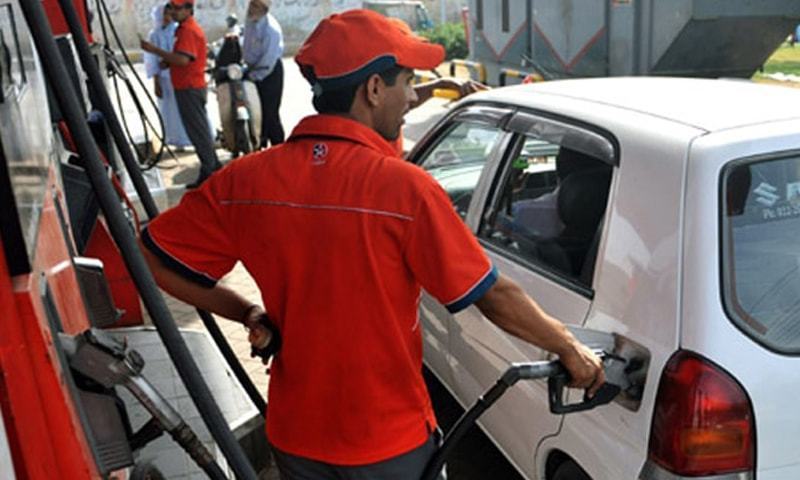ISLAMABAD: The prices of all petroleum products are expected to increase by up to Rs4 per litre because of higher international oil prices.
A senior Petroleum Division official said the summary from Oil & Gas Regulatory Authority (Ogra) for oil price increase for October has reached the Ministry of Finance. Ogra’s working paper for price increase is based on existing tax rates and average import costs paid by Pakistan State Oil (PSO) during the current month.
The finance ministry would announce the revised rates of the petroleum products with the approval of the prime minister on Sunday, he said, adding the international oil prices had increased during September while currency exchange rate has generally remained stable.
Based on existing rate of general sales tax and petroleum levy, Ogra has worked out new ex-depot price of high-speed diesel (HSD) at about Rs110, up Rs4 per litre.
Likewise, the ex-depot price of petrol has been proposed at about Rs97 also up by Rs4 per litre.
The prices of kerosene and light diesel oil (LDO) have also been worked out to go up by Rs3 per litre each. As such, the kerosene price is expected to go beyond Rs86 from its current rate of Rs83.25 per litre.
Similarly, the ex-depot price of light diesel oil has been estimated at Rs79 per litre instead of Rs76.05 at present.
The official said the government still had the cushion to maintain the diesel price which had an inflationary impact across the economy. This is important given a recent increase in gas prices with inflationary contribution. On the other hand, the government could shift the burden to petrol prices to make up for the revenue loss. This he said could be easily done by rationalizing general sales tax on both products.
The petroleum prices have generally been on the rise since early 2017 except a couple of reductions.
Currently, the government is charging 22pc GST on HSD, 9.5pc on petrol, 6pc on kerosene and 1pc on LDO. In addition, the government is also charging Rs8 per litre petroleum levy on HSD, Rs10 per litre on petrol and Rs6 and Rs3 per litre on kerosene and light diesel oil (LDO) respectively.
The petrol and HSD are two major products that generate most of revenue for the government because of their massive and yet growing consumption in the country. HSD sales across the country are now going beyond 800,000 tonnes per month against monthly consumption of around 700,000 tonnes of petrol. The sales of kerosene and LDO are generally less than 10,000 tonnes per month.
Published in Dawn, September 29th, 2018











































